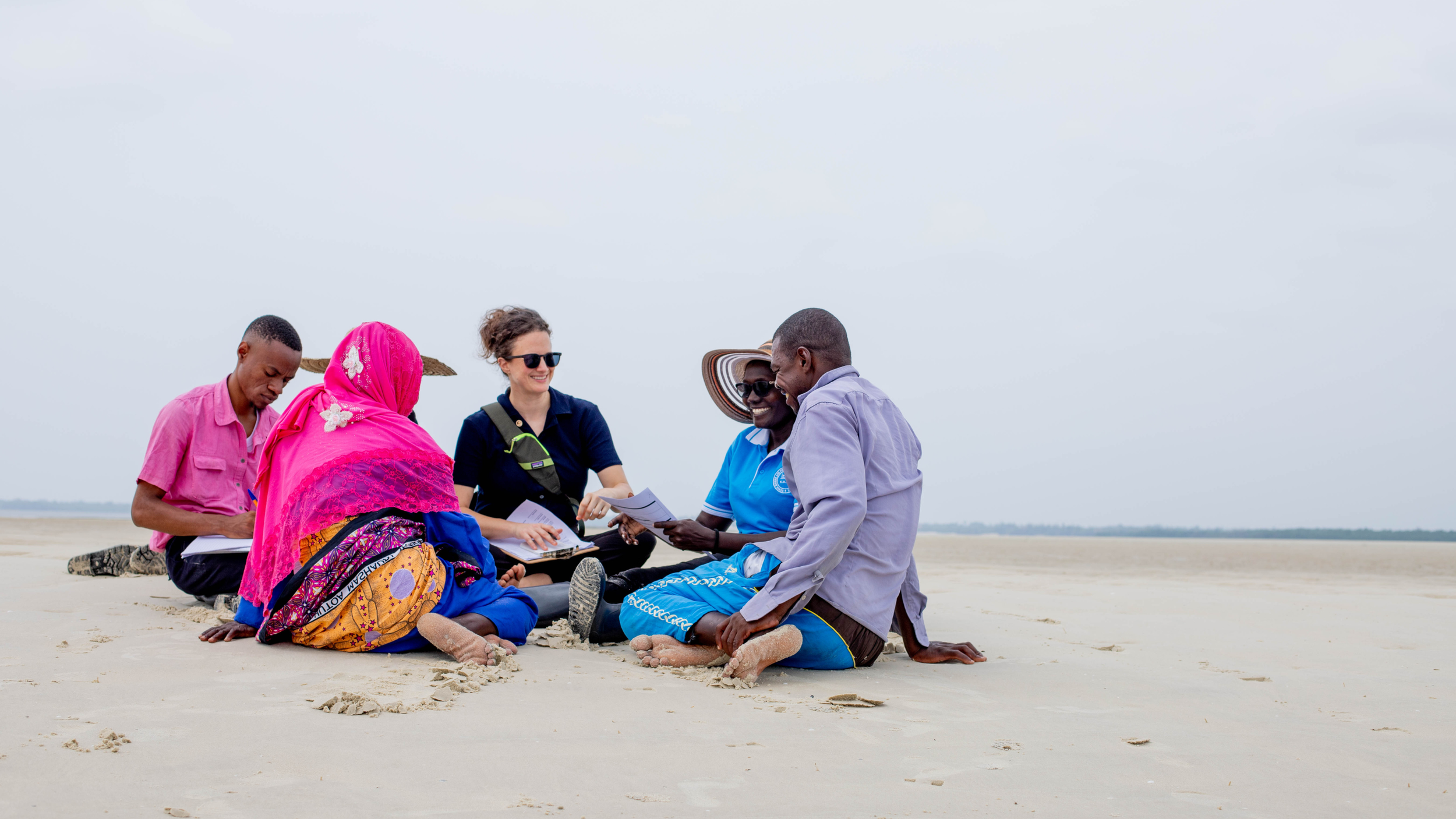There is an estimated 3.5 million square miles of ocean space suitable for finfish mariculture and about five times that suitable for seaweed production. It’s a potential that is being realized around the world as new projects generate benefits for rural communities, cities and the environment.
In Papua New Guinea, the UN Sustainable Development Group is focusing on creating meaningful, sustainable livelihoods for women and youth in Kimbe Bay, a biodiversity hotspot that is home to the second-largest number of coral reef species in the world.
The community there has been heavily reliant on fishing, but the marine ecosystem is facing mounting pressure from pollution, climate change and unsustainable resource use. Seaweed helps purify the water, reduce carbon and support marine life.
The UN program is called “Gutpela Solwara, Gutpela Bisnis” (Good Ocean, Good Business). It empowers micro, small, and medium-sized enterprises in Kimbe Bay to drive economic change while helping to preserve the bay’s marine ecosystems.
In the words of local leader Agartha Buku: “Seaweed farming helps the environment, and it helps our people. It gives women independence, youth a future and the ocean a chance to heal.”
Farmed seaweed can be used to make biostimulants that enhance plant growth, bioplastics, fabrics including textiles and biosynthetic leather, construction materials, nutraceuticals, pharmaceuticals and methane reducing additives, and there’s another seaweed project underway in Kenya helping local women and youth build a seaweed-based value chain.
Canadian company Cascadia Seaweed, the largest commercial producer of regenerative agricultural products derived from cultivated kelp in North America, is working on a four-year project, funded by Global Affairs Canada, contributing its expertise in engineering, biology and markets to local groups.
One of the company’s key interventions involves designing a land-based nursery to provide high-quality seed stock to farmers. This nursery will function as a biobank, focusing on developing more resilient seaweed crops. Furthermore, Cascadia plans to bring nurseries closer to the water, enabling farmers to manage their own seed supply more efficiently and at a larger scale.
Cascadia is also focused on improving market access for the farmers. The company is exploring the potential for bringing a Kenyan-made seaweed-based biostimulant into domestic and regional markets. The goal is to break the monopoly buyer scenario, bring greater profits to seaweed farmers, create entrepreneurial opportunity and provide food security for drought-stricken domestic agriculture.
Kenyan women face economic barriers due to limited access to education, finance and markets. These women often juggle the responsibilities of raising families and managing household chores alongside their seaweed farming activities. Their typical day involves waking up early, tending to their households and then waiting for low tide to begin farming. This leaves them with a narrow two-hour window to seed, check on or harvest their farms.
Kenyan seaweed farmers are currently involved in producing various products, including dried seaweed for export and value-added items like soaps, shampoos and fish feed for aquaculture. Some are also experimenting with processing seaweed into ingredients for cosmetics and other personal care products.
A new project supported by the Australian Centre for International Agricultural Research aims to assist coastal aquaculture in Fiji and northern Australia by building sustainable livelihoods and strengthening food systems for local and Indigenous communities. Led by the University of the Sunshine Coast, the project will explore how integrating seaweed into oyster farming systems can provide additional income, improve water quality and enhance climate resilience.
When seaweeds grow, they strip pollutants such as heavy metals, excess nutrients and oil residue from the water, and this is potentially useful for waterways bordering cities or industrialized areas. Another of the University’s projects has demonstrated the environmental benefits of growing seaweeds on an oyster farm in Moreton Bay, Brisbane. As well as helping to solve environmental problems, the researchers found that oyster farmers would have a new product to sell and the potential to earn additional revenue by selling nitrogen offset credits to industries that produce and release nitrogen into waterways.
In July, North Sea Farmers made the first-ever harvest at North Sea Farm 1, a commercial-scale seaweed farm located off the coast of the Netherlands in the North Sea. The farm, which is uniquely located in an offshore wind farm, was created with support from Amazon’s Right Now Climate Fund, a $100 million initiative dedicated to climate and biodiversity projects that benefit both people and the planet.
By locating the farm between offshore wind turbines, North Sea Farmers found a way of securing physical space for the farm that is protected from maritime traffic in the North Sea.
The harvesting process at North Sea Farm 1 involves the use of a special vessel carefully navigating between wind turbines to collect mature seaweed from four large nets, each measuring 50 meters by 3 meters, anchored to the seabed.
A team of researchers working with North Sea Farmers—Plymouth Marine Laboratory, Deltares and Silvestrum Climate Associates—have been monitoring the farm for the past year via satellite data and site visits. Following the harvest, the farm’s research partners will deliver a comprehensive analysis of the seaweed’s growth, carbon absorption rates and overall impact on carbon storage in the wider ecosystem as well as potential effects on wildlife.
This data will be used to help determine scaling potential for future projects.
The post Good Ocean, Good Business appeared first on Marinelink.com



